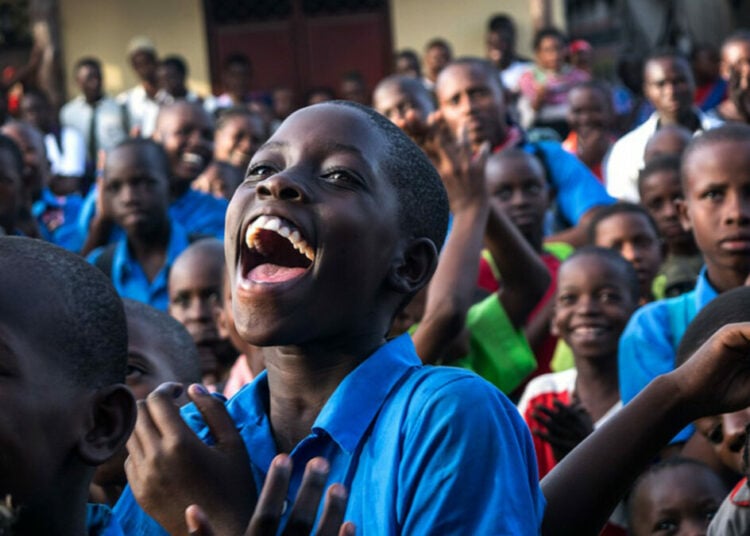The recently concluded KADA EduPACT International Summit 2025, held from July 9 to 11 in Kaduna, Nigeria, emerged as a beacon of hope amid the nation’s deepening educational quagmire.
Themed “Strategic Visioning for Educational Transformation: Developing a Kaduna State Educational Model,” the summit convened global leaders, policymakers, educators, and innovators to reimagine education as inclusive, future-ready, and impactful.
Under Governor Uba Sani’s leadership, it spotlighted Kaduna’s ambitious reforms—such as reducing tertiary fees by up to 50 per cent, returning over 200,000 out-of-school children to classrooms, and enhancing technical and vocational education and training (TVET).
Yet, its true value lies in the scalable lessons it offers for Nigeria’s national crisis. Over 20 million children remain out of school, and recent West African Senior School Certificate Examination (WASSCE) results mark the worst performance in five years, with only 38 per cent passing. Viewed through a global lens, the summit aligns with Sustainable Development Goal 4 (SDG 4) for quality education, urging Nigeria to adopt transformative strategies akin to those in Finland’s equity-focused system or Singapore’s skills-oriented model.
The summit addressed Nigeria’s foundational flaws: inequity, outdated curricula, and inadequate infrastructure. Day 1 featured keynote addresses, including from UN Deputy Secretary-General Amina J. Mohammed, who emphasised education’s role in fostering resilience against poverty and insecurity.
Discussions highlighted Kaduna’s successes, like fee reductions at institutions such as Kaduna State University (from N150,000 to N105,000) and Nuhu Bamalli Polytechnic (from N100,000 to N50,000), which boosted enrolment and retention. Day 2 delved into digital learning and equity, with sessions on amplifying girls’ voices and ensuring AI-access for all children, echoing global calls for digital literacy in underserved areas. Day 3 focused on TVET, tertiary education, and research, culminating in a communique committing to partnerships with United Nations agencies and mindset shifts for systemic change. Post-summit actions, like capacity-building workshops for the Kaduna State Universal Basic Education Board (KADSUBEB) on systems thinking, demonstrate practical follow-through.
These elements provide actionable lessons for Nigeria’s crisis. Nationally, the out-of-school epidemic—exacerbated by insecurity in the North and economic barriers elsewhere—demands similar bold interventions. Kaduna’s model of fee subsidies and enrolment drives could be replicated federally, addressing Universal Basic Education Commission (UBEC) warnings of a “crisis of great magnitude” where enrolled children often fail to learn.
The summit’s TVET emphasis tackles youth unemployment, blending practical skills with academics—a hybrid akin to the Igbo apprenticeship system, which fosters entrepreneurship but lacks formal integration. Globally, this mirrors Germany’s dual education system, where apprenticeships yield low youth unemployment rates (around 5 per cent). Nigeria could adapt this by shortening primary education to five years, emphasising Information Technology (IT) and entrepreneurship in universities, and creating SME banks for graduates, as suggested in ongoing reforms.
The summit critiques the establishment narrative of incremental progress amid federal neglect. While Kaduna invests nearly 30 per cent of its budget in education—mirroring Kano’s recent allocation—the national average hovers below UNESCO’s 20-25 per cent benchmark. Billions poured into unfinished infrastructure, like stalled Kenya Medical Training College (KMTC) campuses or university branches, highlight misplaced priorities, leaving institutions understaffed and underequipped. The summit’s call for decolonising curricula—infusing indigenous knowledge with global technology—challenges Nigeria’s rote-learning relic, which produces “literate but not empowered” graduates. This global outlook draws from Finland’s teacher autonomy and Singapore’s merit-based system, urging Nigeria to prioritise human capital over physical structures.
Solutions abound in the summit’s blueprint. Federally, adopt Kaduna’s partnerships with entities like the Partnership for Learning for All in Nigeria (PLANE) and Arewa Consultative Forum for inclusive reforms. Scale TVET nationwide to combat the 40 per cent child labour rate in rural areas, integrating AI and digital skills to bridge equity gaps. Globally, align with SDG 4 by enhancing teacher welfare, as in Rwanda’s post-genocide education revival, which boosted enrolment from 60 per cent to 98 per cent. Invest in native-language instruction for better comprehension, reducing dropout rates. Post-summit, initiatives like AREWA 24 broadcasts of highlights ensure knowledge dissemination, fostering national adoption.
The KADA EduPACT Summit is no mere event; it’s a roadmap for redemption. Nigeria’s crisis—rooted in poverty, insecurity, and outdated policies—threatens generational progress. By embracing Kaduna’s lessons, the nation can pivot toward a New Nigeria: educated, innovative, and equitable. Policymakers must act—redirect budgets, forge partnerships, and prioritise children over politics. As Peter Obi aptly notes, “A nation that neglects its young people has no future.” The summit’s global vision reminds us that education is not expense but investment in a prosperous tomorrow.





